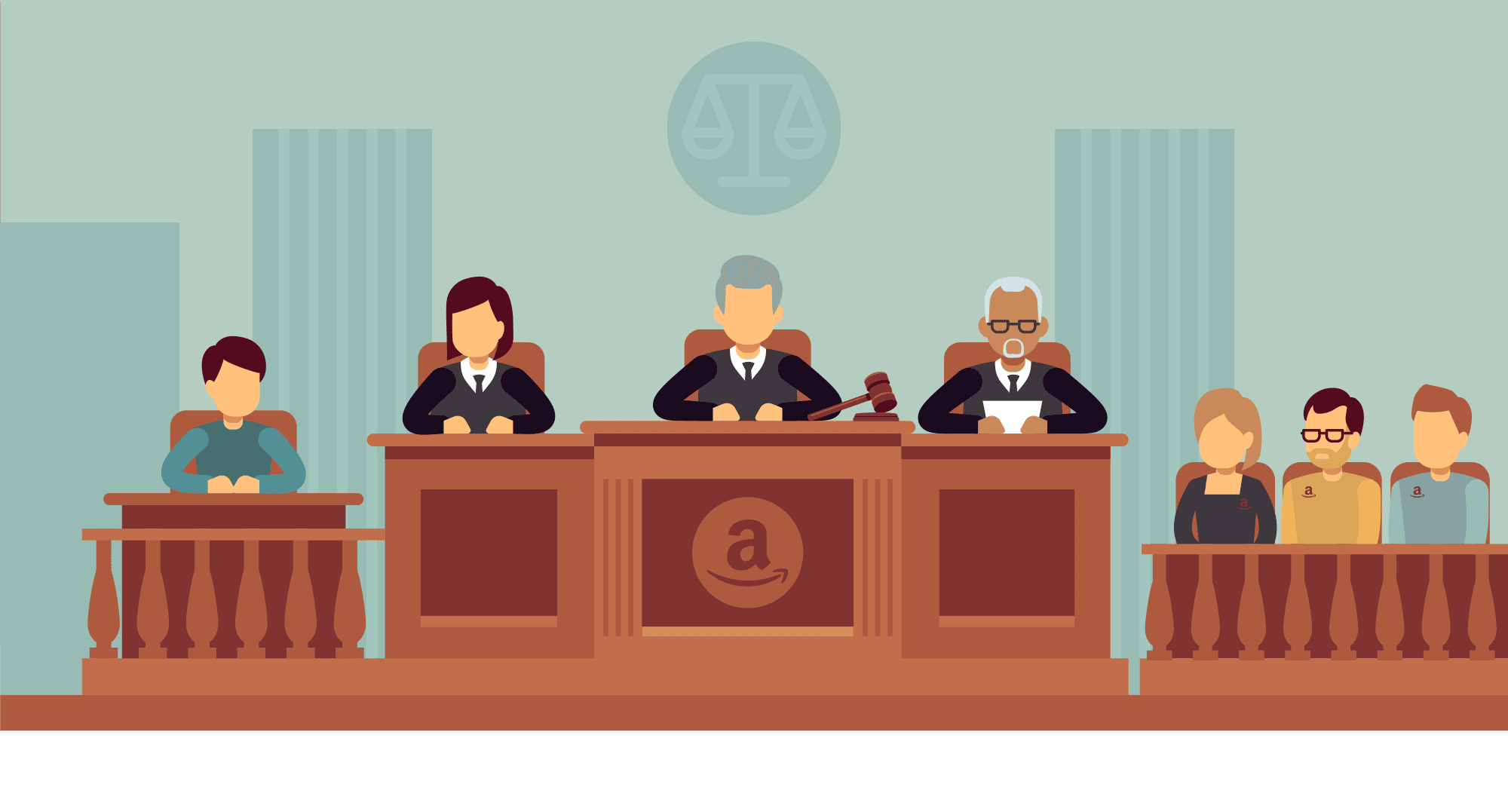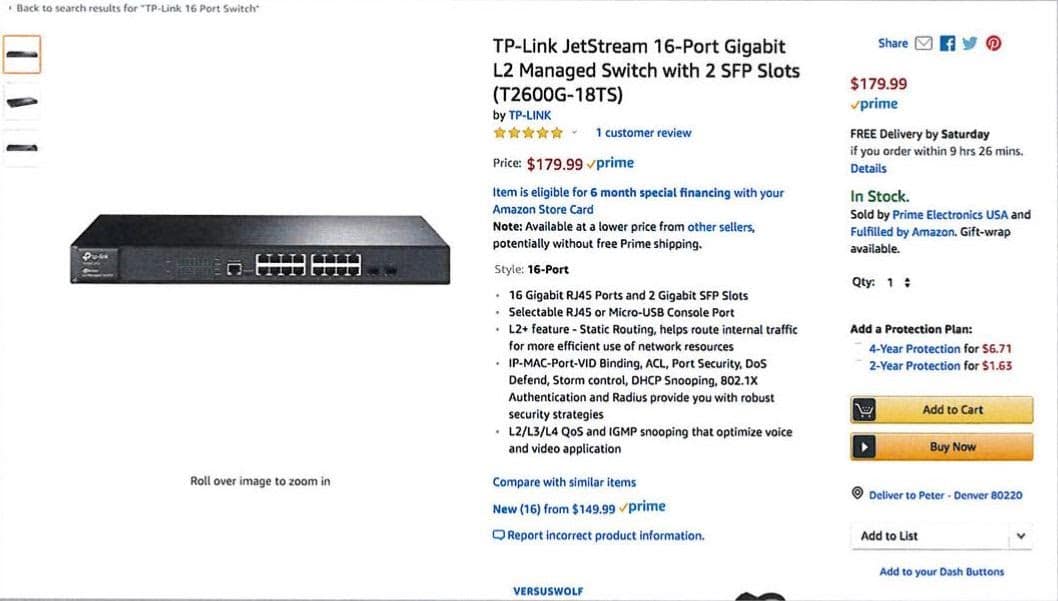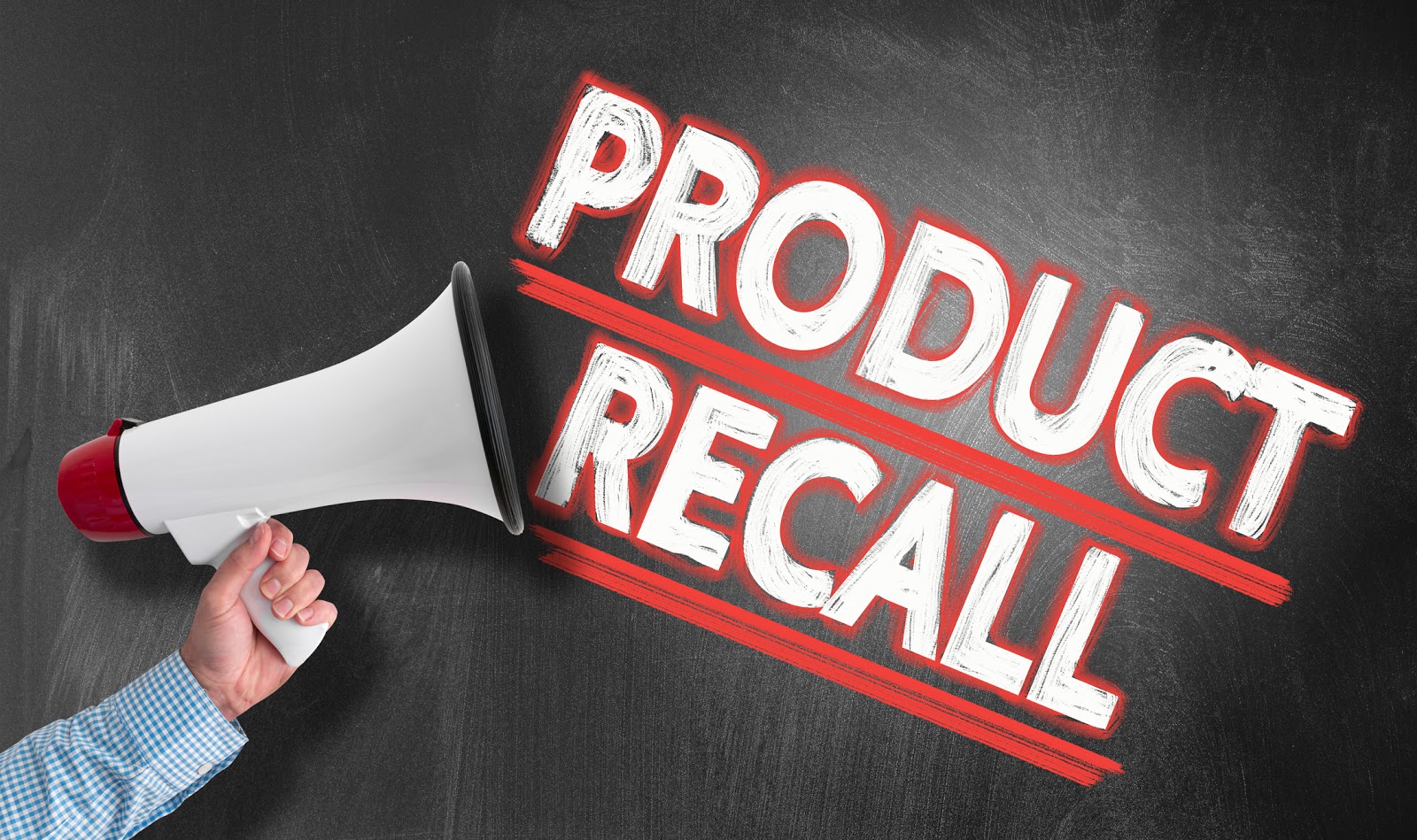6 Legal Issues E-Commerce Businesses Have to Deal With

Running and growing an e-commerce business is more than just developing top-notch products and providing the best services. Even when you’re raking in seven figures in revenue every month, one lawsuit can derail your business or even shut it down completely.
Let’s take a look at some of the most common legal issues e-commerce sellers face and the things you can do to avoid them.
Contents
Product Liabilities
It was a dream come true turned into a nightmare.
Buckyballs creator Craig Zucker made a fun toy he could sell to earn extra income. It made so much more money than he expected. However, when children started swallowing the magnetic balls, he was facing a product liability suit that had haunted him for two years.
And while the government settled with Zucker, he had to cough up over $375,000 to recall the toys. In addition, it ended in an agreement that declared it illegal to manufacture, sell, or distribute Buckyballs in the United States.
Product liability suits are one of the scariest things that can happen to a business. It is the legal liability that is incurred for producing or selling a faulty product.
When a product turns out to be dangerous, putting the blame on the manufacturer is an obvious move to make. But not all e-commerce sellers are private labelers. How about if you’re just reselling the product through arbitrage or if you’re just a marketplace where the products are sold, such as Amazon?
Are Resellers Liable for Product Defects?
Yes. You may be held liable for selling dangerous or defective products according to Insureon. However, this is not always the case.
It’s the retailer’s responsibility to make sure that what they’re selling is not dangerous or defective. They are also responsible for any claims that they adopt.
If, for example, a product you are reselling advertises something on the label, Hilfer Law says it is unlikely that the retailer will be liable. However, if the reseller adopts the advertisement or claim in its own materials, the risk increases.

Are Marketplaces Like Amazon Liable for Product Defects?
A lot of products sold on Amazon are from third-party sellers. The company does not necessarily manufacture, sell, or distribute these products.
In fact, this was its main argument in the case of Bolger v. Amazon when it was sued for a defective laptop replacement battery that exploded and burned one of its customers. The product was from a third-party seller named E-Life.

In its decision, the Court held that “under established principles of strict liability, Amazon should be held liable if a product sold through its website turns out to be defective.” The Court said that since the company is a major player in the distribution of products and that it’s in the position to put pressure on manufacturers when the products are unsafe.
Now, Amazon requires sellers to provide proof that they have Commercial General Liability Insurance that shall cover up to $1 million per occurrence. However, in reality, Amazon doesn’t really enforce this.
How Do You Avoid Product Liability Suits?
Liability suits are quite common in the e-commerce industry, but there are some things you can do to minimize your risks:
- If you’re a manufacturer or private labeler, take into consideration the potential dangers of your product. As much as possible, try to prevent them from happening as early as the design stage.
- Make sure your label does not contain illegal or incorrect claims.
- Maintain rights of recourse against your manufacturer
- If you’re a reseller, make sure you’re doing business with a legitimate supplier or manufacturer.
- Get product liability insurance.
Intellectual Property Infringement
Whether it’s intentional or not, IP infringement is a topic that brands take very seriously. Companies can ask for thousands of dollars or even millions in terms of damages if you use their intellectual property without consent.
If you’re an Amazon seller, your account could be suspended immediately if there are reports of infringement on someone else’s patent, copyright, or trademark.
What Can a Seller Do to Avoid Intellectual Property Infringement?
There’s a lot of money involved in IP infringement lawsuits. Sellers who are not careful can face hundreds of thousands worth of liability.
In the era of copy-paste and “Save image as,” it’s easier to infringe on someone’s intellectual property unknowingly. Here are some things you can do to avoid it:
- Create your own images for your listings and advertisements. (Note: Amazon has a special set of rules for its registered affiliate marketers.)
- Assume that everything is copyrighted unless they’re clearly legal to use such as images downloaded from iStock on subscription.
- Note: There’s no attribution defense against copyright claims. This means giving credits to the source does not protect you from copyright infringement claims.
- If you’re a reseller, avoid making material differences to the product (more on this later).
- Talk to a lawyer to make sure you’re not committing IP infringement.
Overall, for these kinds of liabilities, you can still be protected by the corporate veil, but this can still be overcome (you might be familiar with the term “piercing the corporate veil”). So how can you protect yourself from being personally liable in infringement claims?
John Di Giacomo, in one of our Premium Secret Sauce webinars, gave the following advice:
- Establish a standard in your company for your employees. You as a business owner should not get involved in the day-to-day operations with respect to anything that might result in infringement.
- Put your money in places which are not attachable.
- Make sure that there is a clear separation between business and personal assets. Don’t use your own credit card for business transactions.
There are cases, however, when it is your intellectual property that is being infringed. For the detailed steps on how to deal with them, we have a full article on brand protection.
Data Breach Liability and Privacy Issues
In 2014, around 145 million eBay user records were raided by hackers during one of the most infamous data breaches in online history. Amazon had a similar problem in 2018, two days before Black Friday. But this time, it was their own technical issues that caused the disclosure of customer information.
In the world of e-commerce, data is very important if you want to increase your revenue. If hackers are involved in a data breach, they can sell information to your competitors or even hold them for ransom.
Ensuring that your customers’ data are protected is important for many reasons, including the following:
- You will be violating the law if you disclose them without consent.
- It can lead to very expensive settlements. (In 2013, Target had to pay $18.5 million dollars for a data breach.)
- Your customers may lose trust in you and stop buying your products.
Laws and Liabilities Involved in Data and Privacy Issues
The government is getting more involved in data protection with the growing number of online transactions.
In January 2020, California passed the California Consumer Privacy Act (CCPA) that forces companies to provide more information to consumers about how their data are used. In the same year, big tech companies were questioned by Congress, and in that hearing, Jeff Bezos admitted that even he wasn’t sure that Amazon had not used seller-specific data to help its own private-label business. But according to a Wall Street Journal investigation, they are.
Private companies are also taking measures to ensure data protection. Apple’s iOS update allows users to disable tracking. Google will soon phase out third-party cookies.
But here’s the thing about data and privacy laws. They can vary from state to state and from country to country. According to a 2019 study, “EU countries seem to favor customers. In the United States, there are actually no uniform federal laws relating to business cybersecurity.”
What Should You Do to Prevent Privacy and Data Breach Liabilities?
Revision Legal has the following advice:
- Limit customer data collection to only those that are essential for your transactions and in promoting your business. Also, refrain from storing credit card information.
- Make sure your website is hosted on a secure platform.
- Encrypt your data by using Secure Sockets Layer (SSL) authentication so they don’t get hacked while in transit.
- Keep your software up-to-date.
- Keep your site backed up regularly so you don’t have to start from scratch when your data is stolen.
- Invest in small business cyber insurance.
Another things you can do is to segment your system so that no one else except you can easily access all important information. Another thing that most people miss is their physical data security. A person doesn’t have to do much in terms of hacking when he or she can steal a laptop from one of your employees. So make sure those are protected too.
Unauthorized Resellers Selling Your Products
It’s flattering to see your products being sold in various places. But for legal reasons, you should make sure that these resellers are authorized. Sales by unauthorized resellers harm your business for a couple of reasons:
- It undercuts your own sales because they may sell your products at a lower price.
- You might lose the business of your authorized resellers.
- Your brand’s reputation will be affected.
Here’s a case to start us off with this legal issues.
Davidoff & CIE, S.A. v. PLD International Corp.
Davidoff & Cie, S.A. is a Swiss corporation that sells DAVIDOFF Cool Water fragrance products. Lancaster Group US LLC is exclusively licensed to distribute these products in the United States.
However, PLD International Corporation acquired DAVIDOFF fragrances that were intended for international sale and distributed them to discount retail stores in the US. The original codes on the products were covered with stickers and etched out. This was done in order to hide the identity of the vendors who sold the fragrance to PLD.
The issue decided by the court was this: Whether the resale of a genuine product with a registered trademark can be considered infringement.
In deciding the case, the Court said that the Lanham Act, the primary trademark statute of law in the United States, was enacted for the protection of both the consumer and the registered trademark owner. They considered the etching out of the codes a material difference and that the unauthorized resale of a materially different product constitutes infringement.
According to the case above, unauthorized resellers may not resell products that are materially different from the original product because that is tantamount to infringement.
What Should You Do to Protect Your Products from Unauthorized Resellers?
Since we’re talking about infringement, one of the best ways to protect your products is to register your trademark.
Related Podcast: E179: Trademark Protection and the Importance of Being Amazon Brand Registered
If you’re an Amazon seller, CJ Rosenbaum of Rosenbaum, Famularo, & Segall PC advises creating Amazon-specific packages. A difference in the packaging will be considered trademark infringement as well.
The same law firm also advises doing a test buy to see if there is indeed a violation and starting out with a relatively polite cease-and-desist letter. If the reseller obliges, then you may not want to take further action. If there’s still resistance, it’s time to take them to court.
MAP Policy Compliance
This next legal issues is also connected to resellers. The minimum advertised price (MAP) is the minimum price a manufacturer allows their resellers to advertise their products.
This means if you have a MAP policy with your manufacturer and it indicates the MAP to be $50 per unit, you can’t advertise that you’re selling it for $45. However, MAP policies are concerned only with advertised prices. They don’t necessarily prohibit you from selling the products at a discount. Thus, you can advertise each unit as $50, but upon checkout, you may charge only $45.
If you’re a reseller, you should go over your MAP policy and follow the terms you agreed to. If you’re the manufacturer, you can read our advice here.
ADA Trolling
The Americans with Disabilities Act (ADA) was created in 1990 to prohibit discrimination against individuals with disabilities. The law mandates that all places and areas open to the public should be accessible to all, including those with disabilities. However, in the era of the internet, this has been abused by some people.
A 2019 CNBC news documents the struggles of business owners who made their products available online. Later on, they received a summons because their website was not ADA-compliant.
How Can Your Website Be ADA-Compliant?
Persons with disabilities often use assistive technology when accessing websites. Thus, your website should be compatible with these technologies. Unfortunately, the ADA does not have clear rules as to what constitutes compliance.
However, ada.gov has some suggestions:
- Add a text equivalent to every image. This is the alt texts in your uploaded photos.
- If you’re posting a downloadable document, provide one in a text-based format. PDFs are more convenient for reading, but they are not readable by many assistive devices.
- When designing your website, your readers should be able to adjust the font settings.
- Include audio descriptions and captions to videos.

It would also help if you run an ADA audit on your site just to make sure that everything is accessible. There are four principles of the Web Content Accessibility Guidelines (WCAG) that you should consider:
- Perceivable: The information on your website should be presented in a manner that allows them to be perceived by the user.
- Operable: All UI and navigation components must be operable.
- Understandable: Information and UI operation should be understandable to users.
- Robust: One of the most important characteristics of an ADA-compliant website is that it should be robust enough to be interpreted by assistive devices.
Conclusion
E-commerce entrepreneurs, just like all other business owners, have to deal with legal issues. Since more and more businesses are done online, we’re expecting stricter regulations in the future.
It’s best to have a lawyer advise you on these matters. It’s also advisable to get insurance. They can be expensive, but doing so might save you thousands of dollars down the road.
What legal issues have you faced in the past? How were you able to handle them? Share your experience with us in the comments section below.








Here is a related post that may be of interest that summarizes recent developments in e-commerce IP, and privacy law,. Barry Sookman, Top legal developments in e-commerce, privacy and intellectual property, https://www.barrysookman.com/2021/01/04/top-legal-developments-in-e-commerce-privacy-and-intellectual-property/. Barry Sookman